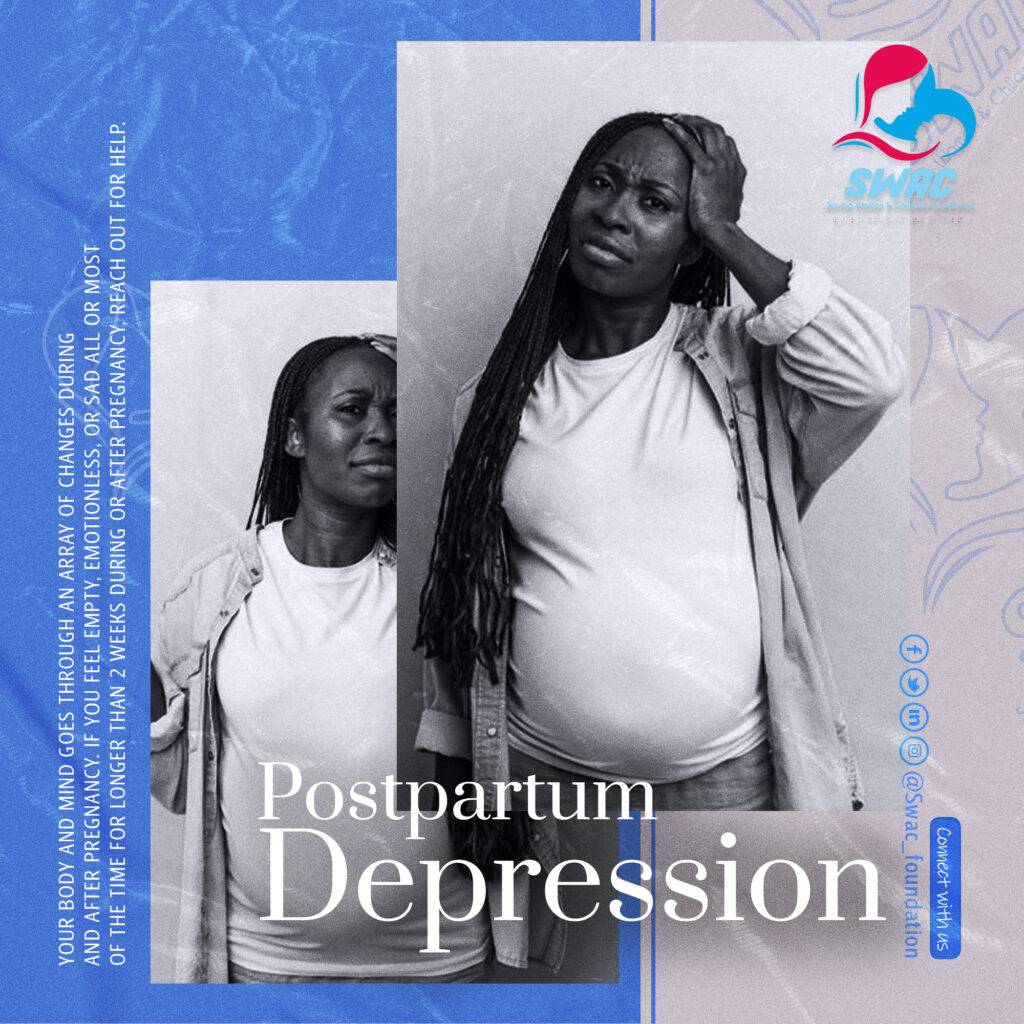If you feel like you don’t love or care for your baby, you might have postpartum depression.
These people are more at risk; 💢Have a personal/family history of depression or bipolar disorder💢Lack of support from family and friends💢 Unmanaged depressed during pregnancy💢Teenage pregnancy💢Alcoholics and illegal drug users💢 Birthing a baby with special needs.
You should suspect postpartum depression if you have any of the following symptoms for more than 2 weeks, call your doctor, nurse, or midwife: ♦️Feeling sad♦️hopeless, or overwhelmed♦️Having thoughts of hurting the baby♦️Having thoughts of hurting yourself♦️Not having any interest in the baby♦️Not feeling connected to the baby♦️or feeling as if your baby is someone else’s baby♦️Feeling worthless, guilty, or like a bad mother♦️ Losing interest or pleasure in activities you used to enjoy.
Post partum psychosis is a more severe form of post partum depression and regarded as a medical emergency. It’s characterized by seeing or hearing things, restlessness or agitation, Paranoia, and confusion all the time.
Treatment options are Therapy, Medications etc.
Some women don’t tell anyone about their symptoms. New mothers may feel embarrassed, ashamed, or guilty about feeling depressed when they are supposed to be happy. They may also worry they will be seen as bad mothers. You and your baby don’t have to suffer. There is help. Your doctor can help you figure out whether your symptoms are caused by depression or something else.
As we mark World Mental health day let’s endeavor in making Mental health and Well-being a global priority.
Follow @swac_foundation
Like ❤️, Share, Tag your friends
#worldmentalhealthday #mentalhealth #mentalhealthawareness #mentalhealthmatters #maternal #ngosinibadan #swaculated

